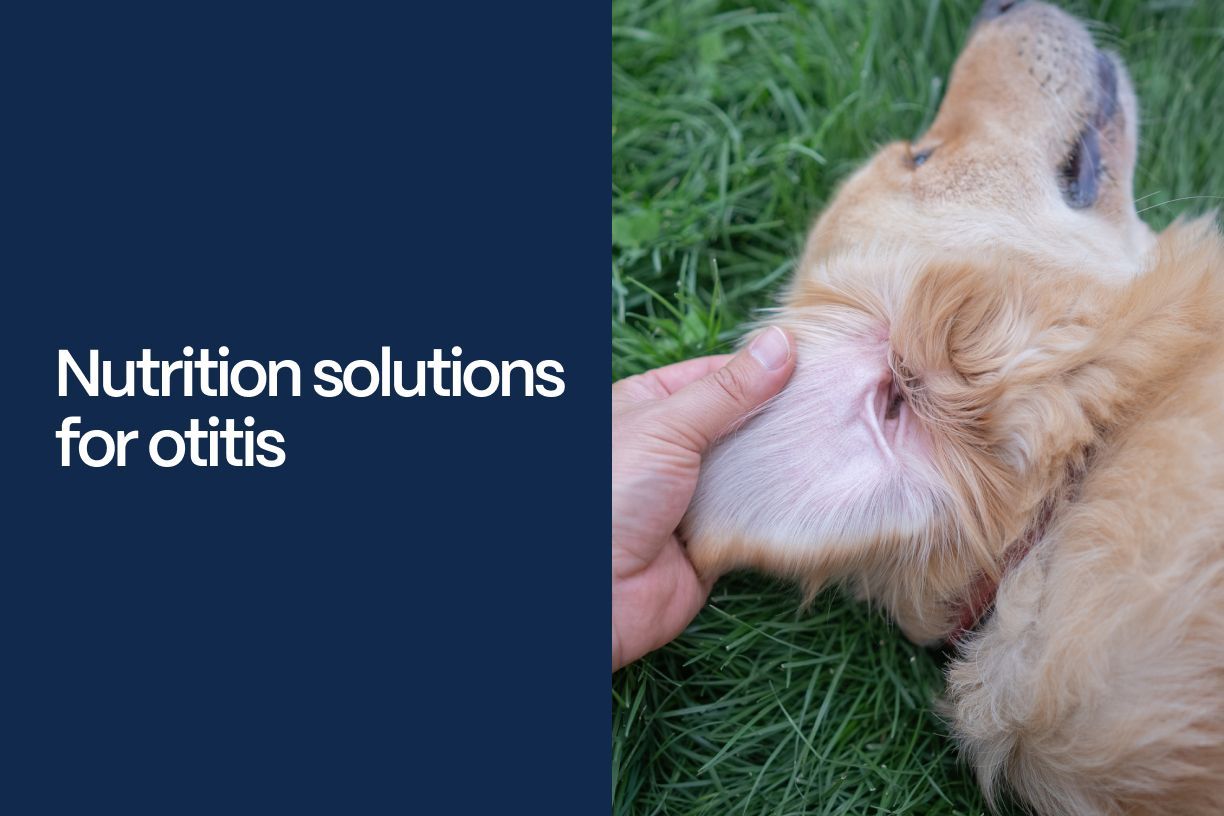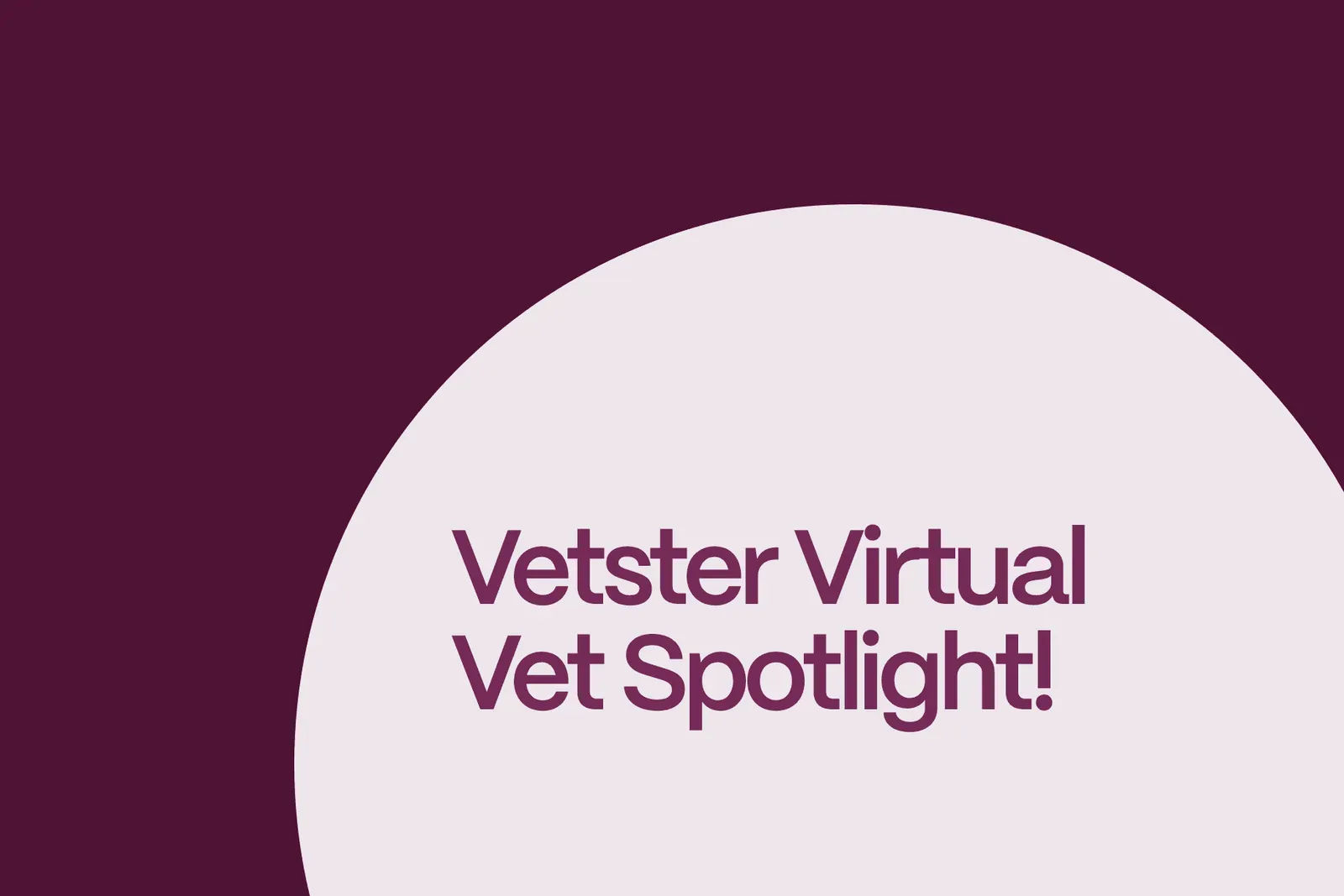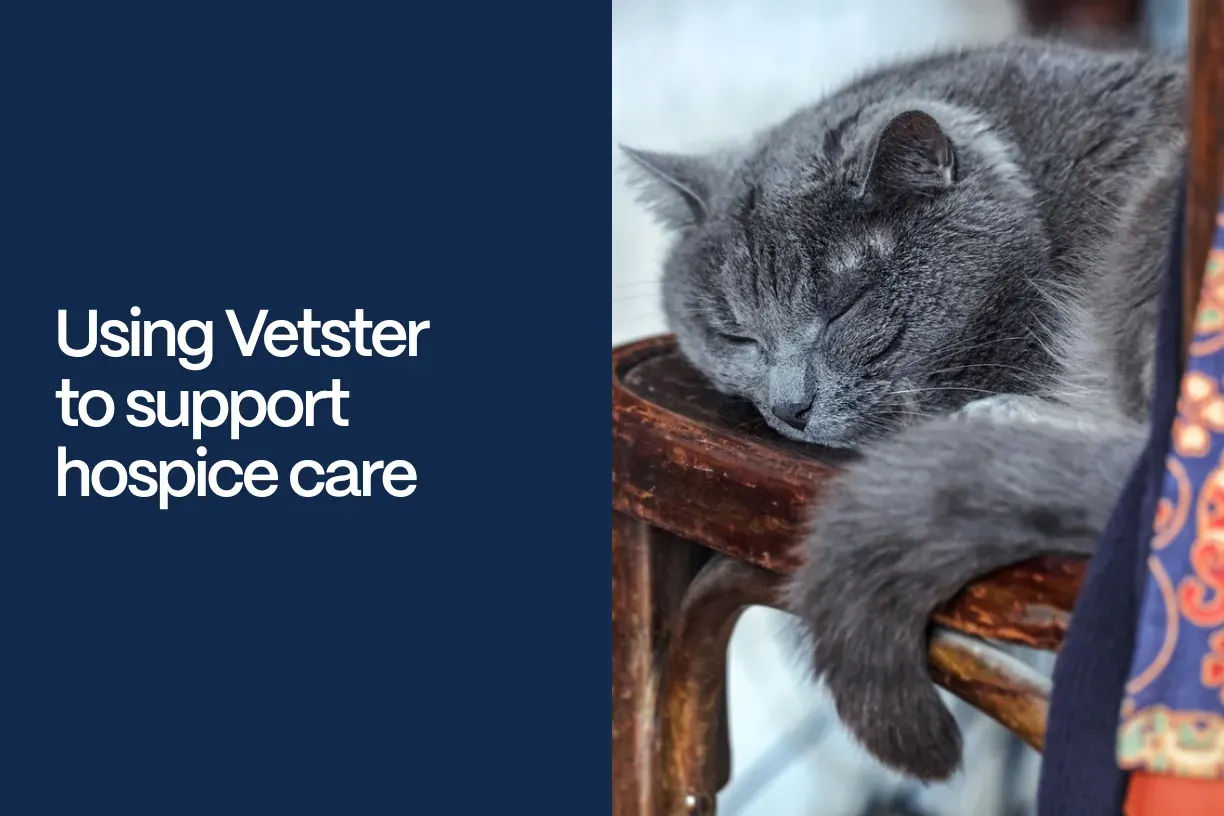Nutrition solutions for otitis

Otitis tops the list of common and frustrating conditions faced by veterinarians and owners alike. How often have you heard a client say, “I’ve tried everything, Doc, and it just keeps coming back!” Otitis often fails to fully respond to treatment due to:
- Using too little topical medication
- Failure to distribute the topical where it’s needed
- Duration of treatment being too short
- Not addressing underlying conditions
Clients need your help when treating otitis in their canine and feline companions. They look to you for:
- Medication application instructions
- Feedback on their medication technique
- Holistic treatment that addresses underlying causes
- Monitoring and progress checks
- Ongoing support as symptoms wax and wane
It’s critical for clients to be informed to successfully manage otitis. Take a look at how this featured Vetster veterinarian emphasizes proper ear cleaning during her virtual care appointments.
Breaking down otitis
Otitis is a multifactorial disorder. Successful treatment of this complex condition requires addressing them all:
- Primary causes: atopy, food allergies, ear mites, foreign bodies, etc.
- Secondary causes: bacterial and yeast infections
- Predisposing factors: anatomical and environmental considerations
- Perpetuating factors: epithelial and glandular changes within the ear canal
In the brick-and-mortar clinic, it’s difficult to take the time to discuss all of the facets of otitis, and this affects outcomes. As a result, clients are often frustrated and think the treatment isn’t working. Virtual care appointments allow time for client education, and when clients understand the whys and hows of treatment, they’re more likely to succeed. This opportunity to supplement the in-clinic care your patients are receiving is a great way to improve outcomes while also building your virtual practice.
Nutrition in otitis treatment
Allergic diseases are the most common underlying cause of chronic otitis, reported to be responsible for 43% of cases. Therapeutic diets, supplements, and probiotics play a role in helping your patients get relief faster while also decreasing the frequency and severity of flare-ups.
- The symptoms of otitis can be significantly reduced by the use of specific therapeutic diets.
- Antioxidant and omega-3 fatty acid supplements can reduce inflammation.
- Probiotics support a healthy gut microbiome and can positively influence overall immune function subsequently reducing the severity of allergy symptoms.
Nutrition is a key component of treatment plans for all types of dermatological cases, including otitis. VetsterRx fulfilled by PetMeds offers a variety of therapeutic diets including hydrolyzed and novel protein diets. Be sure to discuss these with your clients as many of them are keen to hear your nutrition recommendations. Take the time to explain the role of allergies and nutrition in otitis, emphasizing that dietary therapy can address the primary cause of many otitis cases.
With VetsterRx fulfilled by PetMeds it’s easy to search for nutrition solutions for otitis management. We carry many options of hydrolyzed and novel protein diets to help otitis patients get relief faster and reduce the need for other forms of treatment.
Following up
90% of atopic pets show improvement within 8 weeks of starting a hypoallergenic food trial. Let your clients know you’d like them to book follow-ups to see how their pet is doing. Check in within a day or two of the appointment to see how treatment is going and answer any new questions. Set an expectation that you’d also like to follow up after a couple of months so you can evaluate the dietary component of the treatment plan. When you explain that the reason for dietary therapy is to hasten relief of symptoms and increase the interval between flare-ups, clients are more likely to comply.
Otitis on Vetster
Virtual care has many benefits, making it an ideal supplement to in-person care for pets with otitis. Convenient scheduling, freedom from distractions, and the hassle-free nature of seeing the vet from home mean clients are more likely to engage. As a Vetster veterinarian, you are in a perfect position to be effective when sharing client education information about topics like:
- How to use medications
- When and how to clean ears
- The role of nutrition
- Why otitis recurs
- Keys to successful treatment
Your role in supporting the human-animal bond and pet well-being is crucial. Nutrition-based solutions to help treat otitis are at your fingertips on Vetster, so be ready to discuss them as you build relationships with your virtual care clients.
Looking to join Vetster?
You may create an account as a veterinary professional, or learn more here.


